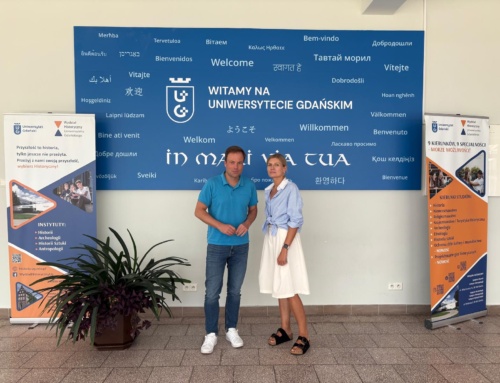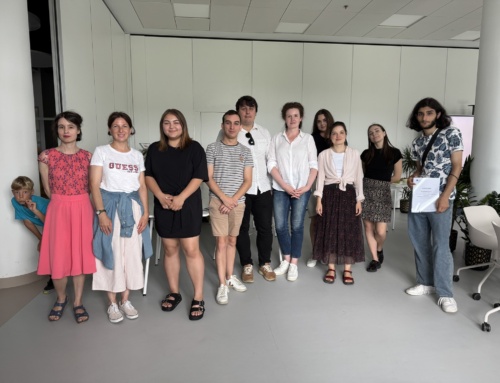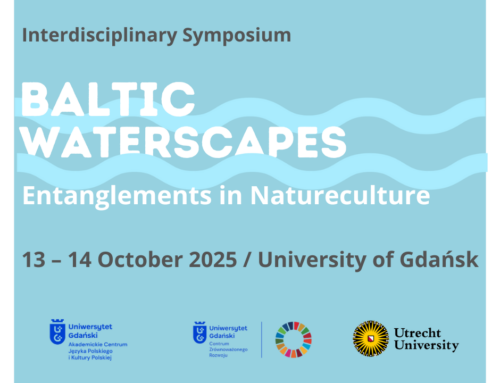The Faculty of Languages of the University of Gdańsk and The Baltic Sea Cultural Center invite you to “(Post)dependency resiliencies. Representations of liberation from violence in literature and culture” International Research Conference, University of Gdańsk, 20th – 21st of October 2025.
Recent decades have not spared the inhabitants of Central and Eastern Europe from many traumatic experiences: the World War, the years of communism, the period of systemic transformation, the civilisational acceleration, or the recent pandemic and war in Ukraine. These events overlap with the still ongoing trauma linked to past experiences: centuries of violence resulting from social inequalities, partitions, uprisings, successive waves of emigration and demographic changes.
Representatives of generations remembering war or communism are still alive. The effects of oppression are also inherited by their children and grandchildren. More or less consciously, they struggle with the broad spectrum of behaviours, emotions, and states of mind typical of a community that suffered decades and centuries of injustice and has built a significant core of its identity on stories about them. This conditions the attitudes of the young, reproducing some of the behaviour of their parents or grandparents – often unclear to them (e.g. victim complex, frustration, helplessness, pessimism, or neuroticism). At the same time, successive generations try to work through the trauma and build new psychosocial resources to cope with future crises. Indeed, responses to violence have also expressed a variety of strategies and manifestations of psychological resilience and wound healing. It is these residual attitudes and behaviours of individuals and groups that are the focus of our interest.
We propose to distinguish resilience from defence mechanisms, as a reaction signalling a return to strength and psychological integrity. We would add that resilience can manifest itself not only after the violence/harm suffered, but also during the course of the violence/harm. Indeed, psychological resilience is a dynamic phenomenon, defined as the resilience of the psyche, which responds actively and realistically to crisis (K. Leppert).
The violence experienced by individuals and societies is often accompanied by the need to establish a new order. We want to ask, therefore, whether stories about the resilience of individuals/societies can provide an opportunity for an alternative identity narrative. At the same time, this is not to question the validity of re-telling the region’s historical traumas and their consequences. The point is to perceive and describe parallel to the trauma narrative oremerging from it in the form of islands and episodes – solstice narratives, residual narratives. These would be expressions of the recovery of agency, self-esteem and a sense of security, as well as the acquisition of new competences. At the same time, they do not mean spinning indiscriminately optimistic tales, but rather complicate the traumatic foundations of identity, expanding them to include other aspects. Finally, fictional and non-fictional representations of residualisation are a trace and a process rather than a certainty. All the more so because residualisation is not always a fixed feature of the subject (J. Asendorf), it can be triggered in a given situation and context. When? How? Why?
Suggestions for specific issues:
- Thematising attempts at resilient liberation from violence in literary works and other cultural texts.
- Defence mechanisms and (self-)therapeutic strategies of heroes and heroines. Anger andother emotions – as a reaction to trauma and potential for the emergence of the subject’s agency.
- Anxiety and hypersensitivity as a ‘cultural norm of the region’ (M. Bilewicz), attempts to transcend irrational behaviour and beliefs, conspiracy theories, and prejudices.
- The work of the ‘war complex’ (S. Baley) and other historical traumas in the bodies and minds of the inhabitants of the Central and Eastern Europe region – opportunities for post-traumatic growth.
- Resilient reactions to violence and intergenerational differences (witness trauma vs. second and third-generation trauma).
- Therapeutic function of narrativising experiences of oppression; resilient function of art, dreams, travel, or contact with nature.
- Factors that foster resilience (values, bonding, personality factors). Ideas of cooperation, dialogue, community – as signals of resilience/healing? Resilience as a future-oriented agency.
- Didactics – at school and academic level – towards the discourse of violence in literature and other cultural texts. The violence of reading cannon and counteracting it.
- Polish culture projects/culture of the region – looking for an alternative identity to the narrative of violence.
We kindly ask you to send your applications for the conference until 1st of June 2025. Application form in the link:
KOdOnRsk3Aske0RUM0tKWlRKTE9SWEpZWjFTUEhZTzJWUFYwNi4u&route=shorturl
Conference fee: PLN 450 / € 100 (paid by 1st of July 2025).
Organising Committee: Dr hab. Magdalena Horodecka, prof. UG; Dr hab. Maciej Michalski, prof. UG; Dr Martyna Wielewska-Baka; Dr Bartosz Dąbrowski.
Coneference Secretary: mgr Paulina Sokólska



